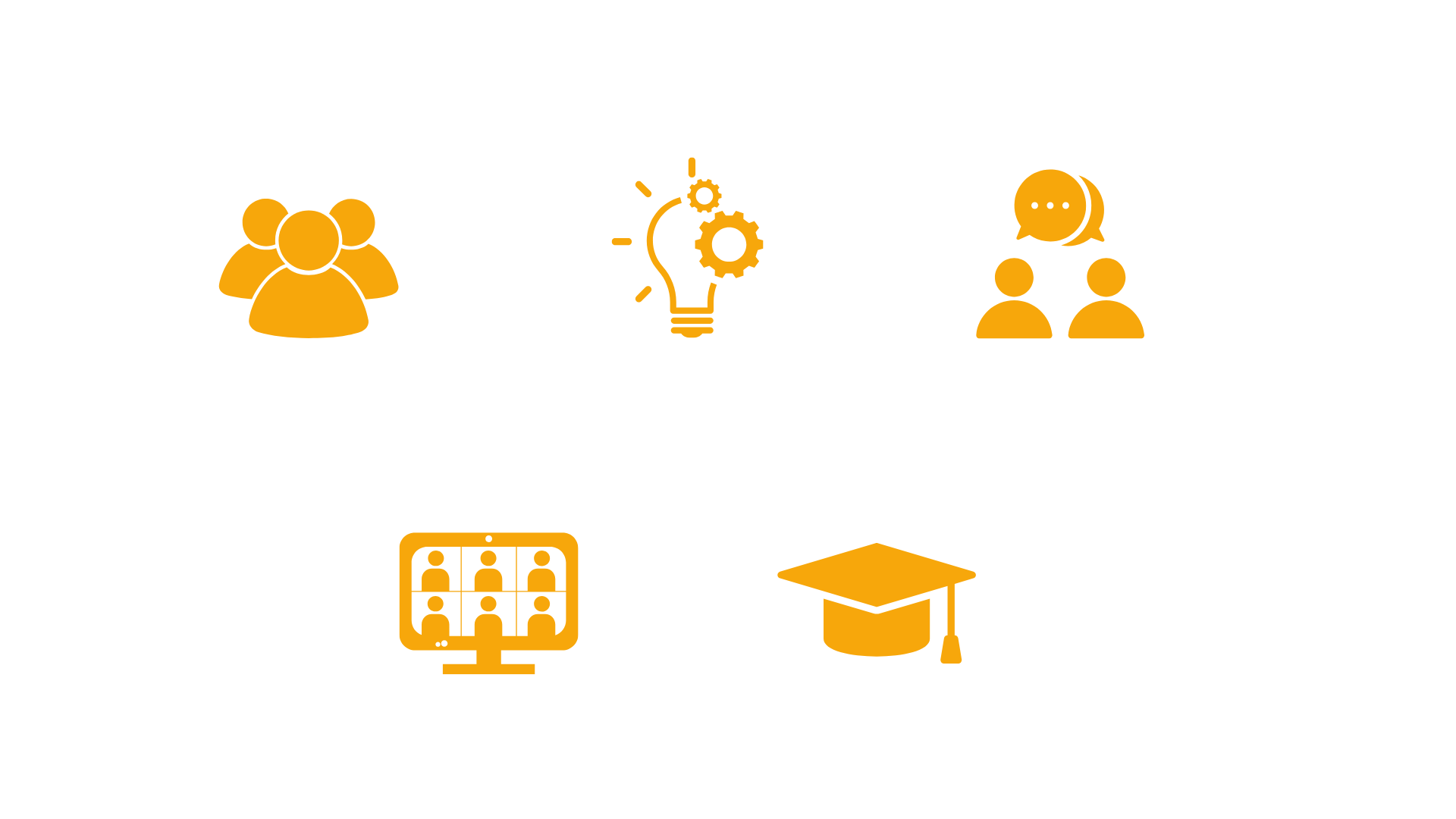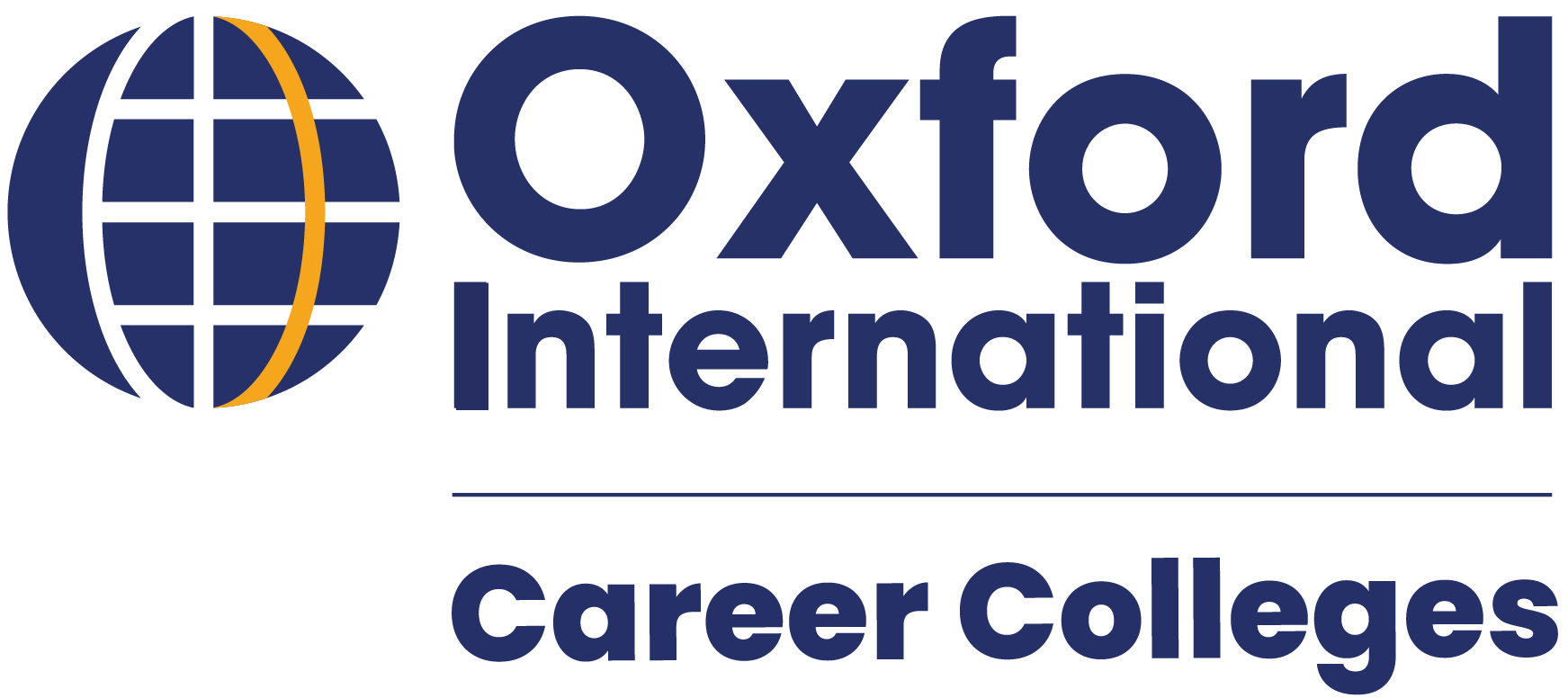Early Childhood Education (ECE) Hybrid Diploma Program
- Achieve a recognized early childhood education credential
- Hybrid learning with evening classes to support students' schedules
- Train for an in-demand field with career growth opportunities in Nova Scotia
- Build on-the-job skills through guaranteed practicum placements
- Get access to Career Academy Canada and develop career readiness skills for success in the workplace
Get Started
Program Duration
60 weeks | 1605 hours
Credential
Diploma
Location
Online & OICC Halifax Campus
Teaching Method
Hybrid
Get started on your early childhood education career path
About the Early Childhood Education (ECE) Hybrid Program
Get started on your early childhood education career path and learn how to make a positive, lasting impact on young children’s lives. Whether you’re fresh out of high school or looking to make a career move, our Early Childhood Education (ECE) Hybrid Diploma program gets you into the workforce quickly while providing you with the valuable knowledge, hands-on skills, and experience employers are looking for. Benefit from self-paced online learning blended with in-person lab schools and practicum placements to support flexible learning with valuable real-world skills development and experience.
Through our Early Childhood Education program, you will earn a Diploma which qualifies you to work as an ECE or in a related position in Nova Scotia. If you are a Canadian citizen or permanent resident, you also have the option of opening a regulated home daycare!
What Will Students Learn?
The Early Childhood Education (ECE) Hybrid Diploma program equips students with the necessary knowledge, technical skills, and soft skills required to succeed in this rewarding field. Early childhood education is a field where you work directly with children and their families, building important relationships at a formative time in children’s lives. Through our program, you will learn how to help children build resiliency, develop social-emotional learning, and have a direct impact on children’s growth. Beyond the program courses, students participate in practicum placements under the guidance of experts in the field:
- 1070 hours of in-person or online synchronous academic theory (60 weeks at 20 hours per week)
- 535 hours of in-person practicum placements (total 4 practicums; 38 weeks at 40 hours per week)
Develop all knowledge and core competencies ECEs require
Gain valuable insights from instructors that are experts in the field
Build critical skills through guaranteed practicum placements
Earn your Standard First Aid (Level C CPR & AED), OHS, WHIMIS, Food Safety, and others to increase employability opportunities

Hybrid Learning Model
The Early Childhood Education (ECE) Hybrid Diploma program offers flexible learning for students, especially those with daytime jobs. All lectures and certain certifications follow a hybrid learning model, where 40% of the course is available online asynchronously and synchronously . The remaining 60% of the program includes offsite lab schools, field trips, remaining certifications, and practicum placements which are all in-person.
During the online portion of the course, students study for 6 hours asychronously (learn at your own pace) every Monday. From Tuesdays – Fridays, classes run sychronously where students attend live online lectures from 6:00pm – 9:30pm AST. During the online courses, students complete theory learning and practice, participate in group discussions and hands-on exploration, and complete knowledge checks. All activities and additional program resources are accessed via Moodle, our Learning Management System (LMS).
All practicums must be completed in person. This allows students to receive the full experience as an ECE, preparing you for your future profession by practicing and enhancing learned skills from theory classes as well as developing more responsibilities within the field.
At OICC, we understand the benefits of in-person events as it creates a community of learning, allowing you to build meaningful and lifelong connections with your peers, instructors, and campus staff. Some of these events include:
- School orientation
- Career Academy Canada sessions, events, and related activities
- Standard First Aid (Level C CPR & AED) and Circle of Security Parenting (COSP) certifications

$49,000
average annual salary in Nova Scotia
Very Good
job prospects in Nova Scotia for the next 3 years (5 out of 5 stars)
Early Childhood Education Career Opportunities
Early Childhood Educators (ECEs) provide care for infants to school-aged children and lead children in activities that stimulate and develop their intellectual, physical, and emotional growth. ECEs work in childcare centres, daycare centres, pre-primary programs, kindergarten classrooms, and other settings.
The Government of Canada Labour Market Information reports that the employment outlook will be very good for Early Childhood Eductors (NOC 42202) in Nova Scotia for the 2024 – 2026 period.
Data reported on the Government of Canada Job Bank
The very strong demand for ECEs in Nova Scotia is related to he ongoing implementation of the Nova Scotia Canada-Wide Early Learning and Child Care Agreement, where the number of childcare workers is expected to increase into the thousands across the province. “Qualified jobseekers should have little difficulty finding employment through the province.” – Government of Canada Labour Market Information
Our Early Childhood Education Hybrid Diploma program is designed to meet the demand for qualified and high-performing ECEs in Nova Scotia by equipping our graduates with the right knowledge and skillsets required to succeed in this rewarding field. We’re here to help you get started on your new career path. Once you graduate from our Early Childhood Education Hybrid Diploma program, popular career path options include:
- Early Childhood Educator (Level 2)
- Early Childhood Educator (Level 3)
- Day-Home Consultant
- Assistant Director
- Director of ECE Programs
Program Courses
During the ECE Hybrid program, our students complete self-paced online modules for the academic theory portion of the program, developed by qualified instructors that have years of experience in the field. These modules are developed with the latest instructional design best practices to make learning manageable and engaging, and include a variety of interactive videos, activities, and assessments. Through our quality curriculum, students develop a thorough understanding of early childhood theory, techniques, and practices required to succeed in the field.
Child Development from Conception to Age 12
This course provides learners with knowledge and skills necessary to understand the ways in which children usually progress from conception, through birth and infancy, into childhood up until they generally transition into a formal school setting at age 6 and follows school- age development up to age 12. Emotional, social, physical, cognitive, and moral and spiritual development will be examined at each phase of development, including factors such as family, culture, language, societal and social influences which may impact development.
Respectful and Responsive Relationships
Diversity and Inclusion 1: Fundamentals of Early Childhood Education in NS
Observing, Assessing and Documenting
Computer, Communication and Employability Skills
Understanding and Engaging Families
Learning Through Play 1: Intentional Planning in Play
Guiding Children’s Behaviour
Diversity and Inclusion 2: Supporting Multiple Developmental Pathways
Community and Workplace Relationships
Supporting Children’s Health, Safety and Well-Being
This course provides learners with knowledge and skills necessary to promote well-being of children. Illness recognition and prevention and universal precautions will be explored. The role of nutrition to wellness, development of life-long eating habits, menu planning, safe food handling and safety will be reviewed. The provision of safe environments as required by licensing standards and best practice will be discussed.
Learning Through Play 2: Outdoor and Indoor Learning Environments
Responsive Infant and Toddler Care and Development
Administration and Management of Early Learning Programs
Becoming a Professional Early Childhood Educator in Nova Scotia
Working With School Age Children
Pedagogical Documentation of Children’s Learning
Program Practicum Placements
As part of the ECE Hybrid program, students are also required to participate in 535 hours of practicum placements in an in-person, full-time (40 hours per week) capacity.
These program placements are a fantastic way to not only build real-world skills but also improve your confidence and help you learn how to engage with and help develop young children. At OICC, we have a 100% practicum placement rate, meaning we guarantee our students will get the valuable opportunity to experience working as an ECE. We ensure placements are guaranteed by developing close relationships with various childcare centres.
Practicum I
Students will apply the basic principles of practice learned during the academic theory classes. During this practicum experience, students will be observing, learning how to interact with children, and will start to get comfortable in a real ECE setting.
Practicum 2
Students will apply the basic principles of practice learned during the academic theory classes. During this practicum experience, students will be observing, begin implementing activities for children, and will be getting more comfortable with play-based curriculum.
Practicum 3
Students will apply the basic principles of practice learned during the academic theory classes. During this practicum experience, students will be working directly with Early Childhood Educators, completing all tasks of the classroom including….
Practicum 4
Students will apply the basic principles of practice learned during the academic theory classes. During this practicum experience, students will be a fully-integrated team member in the child care classroom and demonstrate skills and abilities that align with the expectations of a qualified ECE.
Increase Your Employability Opportunities with Certifications
During the ECE Hybrid program, you not only earn your mandatory certifications that are required for all Early Childhood Educators to work in childcare settings, but you also have the unique opportunity to earn additional certifications that are only available through OICC that help you be better prepared to work with young children. These additional certifications not only enhance your resume to help you stand out amongst other applicants, but they increase your employability opportunities.
Mandatory Certifications
- Standard First Aid (Level C CPR & AED)
- Occupational Health and Safety (OHS)
- Workplace Hazardous Materials Information System (WHIMIS)
- Food Safety
- Child Abuse Protocol Training
Additional Certifications
- Circle of Security Parenting (COSP) to learn how to follow cues of children, helping build secure attachments and positive relationships.
- The Pyramid Model Consortium – Trauma-Informed Care to learn how to understand a child’s lived and family experiences to provide the most effective care.
Career Academy Canada
In today’s increasingly competitive job market, it can be overwhelming to navigate the professional world and understand what skills and attributes employers are looking for.
With Oxford International’s Career Academy Canada, we partner with you to:
- Identify, develop, and map out your career plan
- Build the skills you need to achieve your goals
- Expand your industry and employer networks in the field you’re interested in



Tuition Fee Guarantee
Our Commitment to You
We are proud of the quality of our Early Childhood Education (ECE) Hybrid program and are confident that you will receive an offer of employment (part-time or full-time) in the early childhood education field upon graduation.
In fact, we are so confident in our quality assurance that we commit to refunding your tuition fees in full if you graduate from the OICC | Oxford International Career Colleges ECE Hybrid program, but do not receive any offer of employment (part-time or full-time)!
For more details and terms and conditions, please see the Tuition Fee Guarantee section in the FAQ below.
ECE Hybrid Program Start Dates
August 11th, 2025
August 11th, 2025
August 3rd, 2026
August 3rd, 2026
November 30th, 2026
November 30th, 2026
* The schedule is subject to change
About our OICC Halifax Campus

1801 Hollis St (4th floor), Halifax, NS B3J 3N4
Study in the heart of downtown Halifax, right beside the Halifax waterfront and ferry terminal, with easy access to the city’s top attractions and walking distance to restaurants, shopping, art galleries, and more. Our OICC Halifax campus offers unbeatable views of the downtown core and harbourfront, and is centrally-located with easy access by public transit and car.
Our bright and modern classrooms, fun student vibe, and highly-qualified instructors foster a vibrant learning environment where you feel inspired to dig into your studies and achieve your career goals!
General Information
Scope of work as an ECE
The job of an ECE involves caring for children of all ages and working with families of all ethnic backgrounds. An ECE will be working with children who are very vulnerable and who will need help with their daily living activities such as feeding, mobility, and toileting.
Students taking the ECE Hybrid program understand that it is a requirement of the program and the work of an ECE to adhere to the Canadian Character of Rights and Freedoms which states that all individuals have the right to equality before and under the law, without discrimination based on race, ethnic origin, colour, religion, gender, age of mental or physical disability.
Continuing Education Program
Continuing Education Program for Domestic Students
The Government of Nova Scotia is offering domestic students reimbursement of up to $1,000 per year if working part-time or up to $5,000 per year if working full-time.
This program is applicable for students upskilling to Level 2 or Level 3 ECE classification only. This program cannot be combined with any other Government funding, but it can be combined with the OICC program scholarship of $3,000.
Nova Scotia ECE classification level equivalency
| Province/Territory | Nova Scotia Entry Level | Nova Scotia Level 1 | Nova Scotia Level 2 (OICC ECE Diploma Program) | Nova Scotia Level 3 |
| Newfoundland | Entry | Level 1 | Level 2 & 3* | Level 4** |
| Prince Edward Island | ECE 1 | ECE 2 | ECE 3 & Early Childhood Supervisor | Early Childhood Director |
| Ontario | N/A | N/A | Registered Early Childhood Educator | – |
| Manitoba | Child Care Assistant | N/A | ECE 2 | ECE 3 |
| Saskatchewan | ECE 1 | ECE 2 | ECE 3 | N/A |
| Alberta | Child Development Assistant | Child Development Worker | Child Development Supervisor | N/A |
| British Columbia | ECE Assistant | Early Childhood Educator | Early Childhood Educator Infant-Toddler/Special Needs | N/A |
| Yellowknife | Child Care Worker 1 | Child Care Worker 2 | Child Care Worker III | – |
*ECE Diploma PLUS unrelated degree
**Degree in Early Childhood Education
Please note that equivalencies are subject to review by the issuing province and subject to change based on provincial requirements.
Accommodation
Through OICC Halifax campus, we have two affordable accommodation options to choose from:
1. Fully-furnished and luxurious co-living apartments with modern amenities, just a 10-minute walk to our Halifax campus through 4Stay.
3. Full-board, half-board, or roomstay with a local family through Homestay.
Immigration programs
Our Early Childhood Education Hybrid Diploma program qualifies graduates to work with children in daycare and pre-primary settings in Canada.
As an international student, when you graduate from the Early Childhood Education Hybrid Diploma program, you can access various immigration programs available.
With job prospects for Early Childhood Educators looking to be very good over the next three years, the highest rating through the Government of Canada Labour Market Information, and demand for qualified ECEs expected to grow even more, your career opportunities will continue to grow.
While each immigration program operates differently and has requirements beyond completing Canadian studies, the programs listed below may provide international student graduates with accelerated pathways to becoming Canadian permanent residents:
- International Graduates in Demand Stream
- Nova Scotia Nominee Program
- Atlantic Immigration Program
- Canadian Experience Class
- Federal Skilled Worker Program
Please visit the Government of Canada website for all available immigration programs and details on eligibility and requirements.
About the ECE Hybrid Program
Program fees
Scholarships are available!
Program Fees for Domestic Students
We are currently offering guaranteed $3,000 program scholarships for all domestic students.
| Tuition | Application | Materials | Admin | Scholarship | Total |
| $13,250 | $100 | $2,000 | $150 | $3,000 | $12,500 |
The Government of Nova Scotia is also currently offering bursaries of up to $5,000 CAD for eligible domestic students! If you are a domestic student working part-time or full-time in an ECE setting, you may be eligible to receive up to $5,000 per year through the Government of Nova Scotia’s Continuing Education program! See our FAQ section for more information on both of these programs.
Program Fees for International Students
We are currently offering program scholarships of up to $5,500 for international students.
| Tuition | Application | Materials | Scholarship* | Total* |
| $18,000 | $1,000 | $2,000 | $5,500 | $15,500 |
If you are eligible to receive the maximum program scholarship of $5,500, your tuition could be as low as $15,500!
Available scholarships
Scholarships for Domestic Students
All OICC domestic students are eligible to receive a guaranteed ECE Hybrid program scholarship of $3,000.
Scholarships for International Students
OICC international students can receive a program scholarship of up to $5,500.
Available Scholarships for All Students
At OICC | Oxford International Career Colleges, there are a number of unique scholarships available to students that help you save big on tuition while rewarding you for your hard work and academic performance! Visit our Scholarships page to learn more about which scholarships you may be eligible for and how you can save up to 50% off your program tuition!
Tuition Fee Guarantee
We are proud of the quality of our Early Childhood Education (ECE) Hybrid Diploma program and are confident that you will receive an offer of employment (part-time or full-time) in the early childhood education field upon graduation.
We are so confident in our quality assurance that we commit to refunding your tuition fees in full if you graduate from the Oxford International Career Colleges (OICC) ECE Hybrid program, but do not receive any offer of employment (part-time or full-time). To be eligible, you will need to have:
- Maintained the required attendance during the 60-week ECE Hybrid program including all practicum placements.
- Received passing grades of 70% or above in all areas of the ECE Hybrid program (written or practical).
- Received satisfactory reports from all practicum placement providers.
- Worked respectfully and professionally with children, their families, practicum placement staff, and other profesionals in the field from varied ethnic backgrounds.
- Attended a minimum of 3 interviews with potential employers (minimum 1 interview in a rural area outside of the Halifax Regional Municipality)* in addition to interviewing with your practicum placement provider(s).
- Demonstrated a strong desire to attain the position of an ECE in Nova Scotia.
- Completed all certifications, workshops, and trainings offered through OICC Halifax campus during regular scheduled classroom hours and added mention of these certifications, workshops, and trainings on your resume.
- Attended and participated in your job and interview skills classes.
The OICC | Oxford International Career Colleges Tuition Fee Guarantee for the Early Childhood Education (ECE) Hybrid Diploma program is applicable to all students. Note that an offer of employment does not guarantee approval for any immigration streams, a work permit, or Permanent Residency.
Free laptops for OICC students
As an OICC student in the Early Childhood Education Hybrid Diploma program, you have the option to opt into our laptop program. Laptops are available for all enrolled students and if you decide you do want one, we would deduct the value ($350) off your guaranteed program scholarship. The laptop would be yours to keep!
Terms and Conditions:
- Students do not have to return the laptop.
- Students will receive the laptop (provided OICC receives sufficient notice of student start dates and signing of the laptop agreement) after they start the program and sign their enrolment contract.
- During the final enrolment stages, students will sign an agreement and once signed, they will receive confirmation of free laptop eligibility for their program start date.
- Students may choose to return the laptop provided if it is in perfect working order and not damaged in any way within the 30-day refund period of their program, less an admin fee of $75 for OICC to wipe and refresh the laptop.
- If students withdraw before graduation, they will be deducted $500 for the total value of the laptop from any refund remaining, or they will be invoiced $500 for the laptop if any funds are owing. Once the full value of the laptop is reimbursed to OICC, students can keep the laptop.
- If students break the laptop, they will be invoiced $500 to replace it if they do not graduate. If students do graduate, they will be invoiced $500 to replace it with a new one, or students can choose to decline receiving a new laptop and not pay anything further.
Bursary for domestic students
Bursaries Available for Domestic Students
The Government of Nova Scotia is currently offering bursaries of up to $5,000 CAD for domestic students* that are enrolled in full-time studies at approved Nova Scotia post-secondary institutions in 2025! Note that our ECE Hybrid program qualifies for this bursary program.
-
Studying full-time and remain in good academic standing.
-
A Canadian citizen or permanent resident of Nova Scotia* (temporary foreign workers, international students, or any other person in Canada on a temporary resident visa do not qualify).
-
Payments will be issued to the training institution (Oxford International Career Colleges) on behalf of successful applicants in the fall and winter semesters. Training institutions will apply the bursary to each successful student’s account.
-
Priority for funding will be given to students from equity-deserving groups.
-
The following students are not eligible to apply:– Students currently enrolled in an ECE Diploma already funded by EECD.– Students who are currently receiving other EECD funding (e.g., staff receiving continuing education funding for part-time studies).
Continuing Education Program
Continuing Education Program for Domestic Students
The Government of Nova Scotia is offering domestic students reimbursement of up to $1,000 per year if working part-time or up to $5,000 per year if working full-time.
This program is applicable for students upskilling to Level 2 or Level 3 ECE classification only. This program cannot be combined with any other Government funding, but it can be combined with the OICC program scholarship of $3,000.
ECE Hybrid class schedule
The ECE Hybrid program is 40% online, 60% in-person.
Mondays: 6 hours of learning at your own pace
Tuesdays – Fridays: Live lectures online from 6:00pm – 9:30pm AST.
If you have your ECE Level 1 or Level 2 credential
If you already have your ECE Level 1 or Level 2 credential, our ECE Hybrid Diploma program allows you to level up and further your career opportunities.
If you have an ECE Level 1 credential: You will be required to take the full program and complete all courses and practicums. Once you graduate, you will have earned your ECE Level 2 credential.
If you have an ECE Level 2 credential: If you have your ECE Level 2 credential and a university degree, successful completion of our program will allow you to graduate with an ECE Level 3 credential.
Free AECENS membership
As an OICC student in the Early Childhood Education Hybrid Diploma program, you get a free membership to the Association of Early Childhood Educators in Nova Scotia (AECENS)! This free membership gives you special access to:
- Professional development and networking opportunities.
- Key Early Childhood Education conferences at a specially-discounted rate.
- A Lending Library to access various resources needed for practicum placements (materials, toys, books, etc).
Admission Requirements for the ECE Hybrid Program
Secondary School requirements
Applicants must provide proof of Secondary School eduation or equivalent through one of the following:
- Canadian Grade 12 Certificate, Diploma, or GED
- International Grade 12 or higher
- A student with a score of 14 or higher on the Wonderlic SLE (or other approved Ministry test)
Note: CAT and CAST are no longer eligible.
Childcare experience requirements
Applicants need to provide two references that document 25 hours of experience working with children. This can be in paid or unpaid positions, such as babysitting. These two references also need to detail your emotional maturity and suitability for the Early Childhood Education field.
Language requirements
All programs are delivered in English. Proof of English proficiency can be demonstrated through one of the following:
- English competency testing (valid for 2 years)
- Academic IELTS 5.5 (no band below 5.5)
- Academic IELTS 5.5 (one band at 5.0) + 5 weeks of UCP 400
- General IELTS 6.0 (no band below 6.0)
- ELLT Level 5 (no band below 5)
- ELLT Level 5 (one band at 4) + 5 weeks of UCP 400
- CLB 8
- CELBAN Level 7
- CELPIP Level 7
- TOEFL IBT 78
- Pearson PTE Academic minimum score 55 (no band below 50)
- Duolingo 95 (no sub score below 95)
- Oxford International Halifax UCP 400
- Oxford International Digital Institute (OIDI) Pathways English Online (PEO) for Higher Education Canada – Undergraduate level
- Unaccommodated Canadian Grade 12 Certificate, Diploma, GED or CAEC (minimum score of 60)
- Completed at least two years in an accredited high school offered in English.*
- International Baccalaureate Diploma Programme (DP) and Career-related Programme (CP)
- English A Literature Level 5
- English A Language and Literature Standard Level 5/Higher Level 4
- English B Language Acquisition Standard Level 6/Higher Level 5
- Minimum two years of consecutive full-time academic study where the language of instruction is English are exempt from supplying an English proficiency exam for admission. Credential evaluation document required (for example, WES, ICAS).
- Two years of full-time academic study in the following countries where the language of instruction is English:
Antigua, Australia, Bahamas, Barbados, Belize, Bermuda, Botswana, Canada, Gambia, Ghana, Grand Cayman Islands, Grenada, Republic of Ireland, Jamaica, Kenya, Lesotho, Liberia, Malawi, New Zealand, Nigeria, Northern Marianas, Palau, Papua New Guinea, Philippines, Rwanda, Sierra Leone, South Africa, St Kitts, St Lucia, St Vincent & Grenadines, Swaziland, Tanzania, Trinidad and Tobago, Uganda, United Kingdom, United States, Virgin Islands, Zambia, Zimbabwe.
*Students are required to provide proof that the medium of instruction (MOI) was English. An accepted MOI is to be provided with the school stamp.
Other requirements
Additional requirements:
- Attend a pre-screening interview
- Child Abuse Registry Check
- Criminal Record Check (translated if necessary) and valid within 6 months
- COVID vaccination status on file
- Copy of your passport
For International applicants:
- Study Permit visa and Co-op visa
- Canadian Criminal Record Check with a Vulnerable Sector Search if you have been residing in Canada for more than 6 months
- Criminal Record Check / Police Clearance Certificate from your home country if you are residing outside of Canada
- A Vulnerable Sector Search once you enter in Canada
Applying to the ECE Hybrid Program
I'm ready to apply
In order to apply to our Early Childhood Education (ECE) Hybrid Diploma program, please fill out an online application. Once you submit your application, our Admissions team will be in contact with you within a few days to confirm the next steps.
If you aren’t sure that you can meet the admission requirements for the program, we recommend you connect with your Oxford International representative to learn more. If you do not have the English levels required, OICC Halifax campus offers pre-sessional English programs that provide direct entry to the ECE Hybrid program.
I applied to the program
Well done! You’ve taken your first step towards a bright new future as an Early Childhood Educator in Nova Scotia.
Our Admissions team will review your application and any supporting documents. We know you’re eager to hear back from us and we’ll be in contact as soon as possible.
I received my conditional offer letter
Please read your conditional offer letter carefully and keep it safe! You’ll see the list of what you need to do to start your program at OICC Halifax campus. Pleasse remember that it is your responsibility to meet any requirements or conditions outlined in your conditional offer letter.
In the conditional offer letter, we outline the start date we’ve offered you, the fees you need to pay, and any additional conditions you are required to meet before you enroll.
For Domestic Students
You are now able to book your ECE Hybrid program interview to ensure you are a suitable candidate to begin the program. Your conditional offer letter will outline the steps you need to take to book your interview.
For International Students
You are now required to pay your $1,000 CAD Application Fee. Please ensure you are prepared to meet all requirements listed in your conditional offer letter before paying the Application Fee as it is non-refundable. Once you pay your Application Fee, you are now able to book your ECE Hybrid program interview to ensure you are a suitable candidate to begin the program. Your conditional offer letter will outline the steps you need to take to book your interview.
I passed my program interview
Congratulations! You have now met one of the major requirements shown on your conditional offer letter! Only those applicants that demonstrate they are a good fit for the ECE Hybrid program pass their interview.
For Domestic Students
You will now be issued your official offer of admission and be permitted to enroll as a student in the OICC ECE Hybrid program!
For International Students
You are now required to pay your tuition deposit and will be issued your Letter of Acceptance (LoA) and Provincial Attestation Letter (PAL). These are required documents in order to apply for your visas.
Apply for the Study Permit visa within 10 weeks of receiving the LoA and PAL. You also need to apply for the Co-op visa at this time.
I received my study and co-op work permits
For International Students:
Congratulations! You are now ready to begin your journey to becoming an ECE.
Read your documents carefully because they will say when you are able to travel. Do not travel before this date because you may be turned away at the border and this could impact your ability to enter Canada later on. Do not book flights or make travel arrangements until you have received confirmation from OICC that you have been given a seat in the program. We will tell you if there is still space for the program start date you have selected.
It is important that you arrive in time for the start of your program. With such an intensive program, we do not allow students to start late. Late starters would miss valuable learning and experiences. If you think you will not be in Canada in time for your program start date, please notify OICC Halifax campus immediately.
